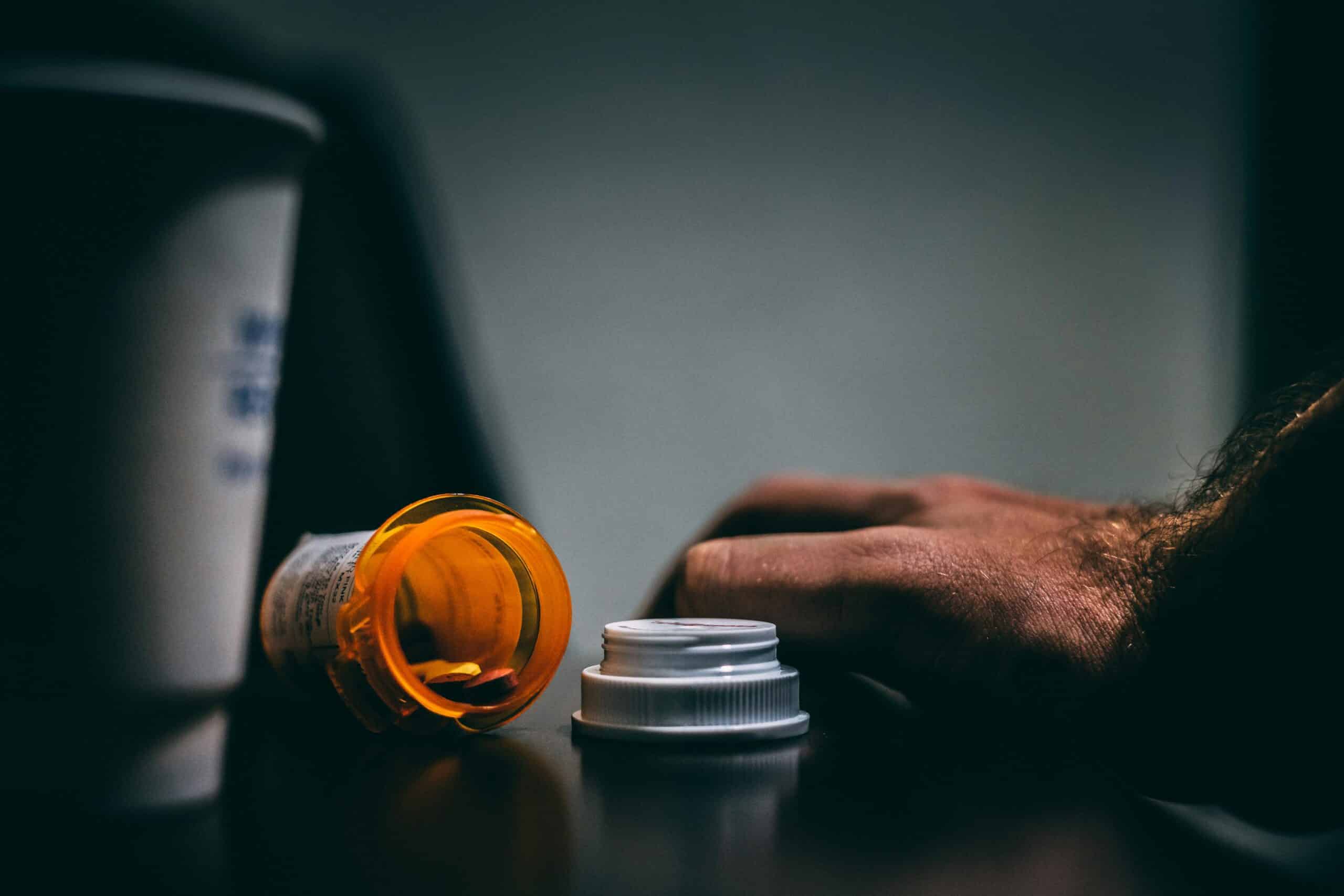Pill addiction is a silent struggle that often goes unnoticed until it becomes too difficult to ignore. It doesn’t always start with abuse; it can begin with a simple prescription for pain relief.
However, over time, the person taking the medication might find themselves relying on it for more than just physical pain. For some, what started as a way to manage discomfort can quickly spiral into an unhealthy dependency that affects every part of their life.
The more you know about how painkillers work, the warning signs of pill addiction, and the cycle people often go through, the better equipped you’ll be to spot it early and help someone in need. Recognizing the problem early can make all the difference in getting the help and support they need.
Signs of Pill Addiction
Recognizing pill addiction can be tricky, especially if the person is trying to hide it. The signs are often subtle at first, but they become more noticeable over time. If you’ve noticed any of the following behaviors in someone close to you, it might be time to pay closer attention and consider the possibility of pill addiction.
NOTE: These signs are not always definitive on their own, but together they can provide a clearer picture.
1. Changes in Behavior
Pill addiction often triggers shifts in behavior that stand out. A usually calm person might suddenly become overly talkative or hyperactive, almost as if they’re “wired” on something.
Meanwhile, someone who’s typically outgoing could become more withdrawn and start avoiding social interactions or isolating themselves. These shifts may seem unusual or out of place, especially if they appear without a clear reason.
Over time, the behavior may feel more extreme, like they’re constantly on edge or seem disinterested in things they once enjoyed. If these changes happen abruptly and without explanation, they could be a sign that substance use is at play.
2. Mood Swings
While everyone experiences mood swings, the ones linked to pill addiction are more intense and unpredictable. Someone abusing pills might swing from extreme happiness or euphoria to feelings of irritation, anger, or sadness in a matter of minutes or hours.
This is often a result of the highs and lows associated with substance use, where the euphoria from taking the pills is followed by a crash, leading to irritability or depression. Unlike occasional mood shifts from stress or life changes, these swings are often out of proportion to the situation at hand and can be jarring for those around the person.
If you notice that a loved one’s mood is unpredictable or constantly fluctuating without any clear trigger, it could be due to their pill use. They might feel great one moment, then snap at someone or withdraw emotionally the next, making interactions tense or difficult.
3. Physical Symptoms
Pill abuse can take a physical toll on the body, and some signs may be easy to overlook if you’re not familiar with what to look for.
Constricted pupils — where the black part of the eye becomes very small — are a common indicator of certain prescription pills, particularly opioids.
They may also experience nausea or dizziness, which can make them look fatigued or unwell. Weight changes, whether rapid weight loss or gain, are also a sign, as some pills can suppress appetite while others might lead to cravings and overeating.
A person who has been abusing pills might not always seem sick in the traditional sense. However, if you see frequent unexplained physical changes, such as vomiting, dizziness, or changes in their appearance, it could be a sign that something deeper is happening.
4. Unexplained Lapses in Memory
Pill abuse can impair memory and cognitive function, even in the early stages of addiction. If the person struggles with memory lapses, they may forget things they’ve recently discussed, miss important appointments, or struggle to remember what they were discussing mid-conversation.
These forgetful moments are more than just occasional mental lapses; they can happen regularly and may feel out of character for the person involved.
You might also notice them misplacing items they usually keep track of, like their keys, phone, or wallet. If these memory lapses seem excessive or happen frequently, it could be due to the pill’s effects on their brain, which disrupt their ability to focus or remember key details.
5. Doctor Shopping
“Doctor shopping” is a common tactic used by people who are trying to get their hands on prescription pills without being caught. This happens when someone visits multiple doctors or pharmacies to obtain prescriptions for the same medication, often for the sole purpose of feeding their addiction.
It’s a secretive behavior, and the person might try to hide it from you or make excuses about needing a second or third prescription. While it’s not always easy to catch, if you notice that they’re always going to different doctors or returning to a pharmacy with strange prescriptions, it could indicate that they’re trying to keep up their supply.
If they seem to have an excessive amount of pills or refills that don’t seem right, this could also be a red flag.
6. Secretive Behavior
Addiction thrives in secrecy. If someone close to you starts acting more secretive or evasive, it could be a sign that they are trying to hide their pill use. They may avoid answering questions about where they’ve been or what they’ve been doing or become defensive if you ask about their habits.
You might notice them disappearing for long stretches of time, sneaking off to “take care of something” or telling half-truths about their whereabouts. They may also go to great lengths to hide their pill bottles or stash them in unusual places, avoiding your access.
7. Neglecting Responsibilities
One of the more troubling signs of pill addiction is a person’s growing neglect of responsibilities. Someone who is addicted to pills might lose interest in work, school, or family obligations.
They may stop showing up to work or fail to meet deadlines. Relationships may also start to suffer, with the person pulling away from friends or family members and failing to maintain basic social interactions.
Over time, their daily routine may begin to fall apart as the addiction takes priority over everything else. This could show up as missed appointments, failing to meet deadlines, or withdrawing from activities they once enjoyed.
Why Are Painkillers So Addictive?
Painkillers, especially prescription opioids, are designed to relieve pain, but they also have the potential to become addictive. The reason painkillers are so addictive comes down to how they work in the brain.
They Increase Dopamine Levels in the Brain
When taken, painkillers like oxycodone, hydrocodone, or morphine bind to receptors in the brain and spinal cord that help control pain. While doing this, they also trigger the release of chemicals like dopamine, which makes the person feel good — sometimes euphoric or deeply relaxed.
Over time, the brain gets used to these higher levels of dopamine, and it starts to crave that feeling. The more the person uses the pills, the more they need to take to feel that same sense of relief or pleasure. This cycle of increasing use to achieve the same effect is a big reason why painkillers can lead to addiction.
Relaxing Physical Effects
Painkillers also have physical effects, like slowing down breathing and heart rate, which can make someone feel relaxed or sedated. This calming effect can become comforting, especially if someone is dealing with stress, anxiety, or other emotional struggles.
This makes it even easier for a person to rely on painkillers, not just for pain, but for emotional relief as well.
How People Get Addicted to Pills: The Cycle
Addiction doesn’t usually happen overnight. For most people, it starts small, often with a legitimate need for pain relief. Here’s how it can develop into a cycle that becomes harder to break:
1. Starting with Legitimate Use
A person might first take painkillers as prescribed by a doctor for an injury, surgery, or chronic pain. At first, they only take the medication as directed, and it works well to relieve their pain. They might even feel a sense of relief or calm that helps them get through the day, especially if they’re struggling emotionally.
2. Building Tolerance
Over time, the body becomes tolerant to the effects of the medication. This means the person has to take more of the drug to experience the same level of pain relief or pleasure they initially felt. What started as a prescribed use for pain can quickly escalate into using more pills to feel “normal” or to chase that initial feeling of euphoria.
3. Using Pills for Emotional Relief
As the person continues to take painkillers, they might start using them not just for pain, but to cope with stress, anxiety, or negative emotions. Pills can feel like an easy escape from difficult feelings or situations. What once began as a physical need can evolve into an emotional need, making it harder for the person to stop using them.
4. Dependence Sets In
After a while, the person’s body becomes dependent on the pills. This means they feel physical withdrawal symptoms if they don’t take the pills. The fear of these unpleasant withdrawal symptoms can push the person to take more pills, even when they know it’s not good for them. This can create a vicious cycle of increasing use and dependence.
5. Escalating Use and the Need for Secrecy
As the addiction deepens, the person may start to use the pills in secret, lying about how many they are taking or hiding the fact that they are using them at all. They might also start looking for other ways to get pills, such as visiting multiple doctors or buying them illegally, to maintain their supply.
6. Breaking the Cycle
The cycle of addiction is difficult to break because it involves both physical and emotional dependence. The person may continue to use the pills to avoid withdrawal symptoms or to deal with emotional pain, which keeps them trapped in the cycle. Even if they recognize the problem, the desire to feel “better” or avoid discomfort can make quitting seem impossible.
Find Support for Your Loved One
If you or someone you care about is struggling with pill addiction, recovery is within reach. At Northpoint Recovery, our programs are designed to help individuals break free from the cycle of addiction and rebuild their lives.
We offer personalized treatment plans and ongoing support to address the root causes of addiction and develop healthier coping skills. Our team works closely with clients to ensure they have the tools needed for lasting sobriety.
Contact us today to learn how we can support your journey to recovery.
FAQs About Prescription Drug Abuse
1. How can I tell the difference between normal prescription use and pill addiction?
The key difference lies in control and intent. When someone takes medication as prescribed and stops once they no longer need it, that’s typical use. Addiction often begins when the person takes more than prescribed, feels anxious without the pills, or starts using them for emotional relief rather than pain. If the medication use continues despite negative effects—like relationship strain, secrecy, or poor performance at work—it’s likely turned into addiction.
2. What types of pills are most commonly linked to addiction?
Prescription opioids like oxycodone, hydrocodone, and morphine are the most common culprits, but other medications can be addictive too. Benzodiazepines (like Xanax or Valium) and certain stimulants (like Adderall) can also lead to dependency when misused. Each affects the brain differently, but all share one risk: they alter the brain’s reward system and can create both physical and emotional dependence over time.
3. Can someone become addicted to pills even if they follow their doctor’s instructions?
Yes. Even when used correctly, painkillers and similar medications can cause physical dependence, especially with long-term use. Some people find that they need more of the medication to feel the same relief, which can lead to tolerance and, eventually, addiction. Open communication with a doctor and regular check-ins are crucial for preventing this from happening.
4. What are withdrawal symptoms like for someone addicted to painkillers?
Withdrawal can be physically and emotionally challenging. Common symptoms include nausea, sweating, shaking, insomnia, anxiety, and intense cravings. The severity depends on how long the person has been using and the type of pill involved. Professional detox programs can help manage these symptoms safely and reduce the risk of relapse during early recovery.
5. How can I approach someone I suspect is addicted to pills?
It’s best to approach them with compassion, not judgment. Choose a calm moment to talk and express concern based on what you’ve observed—avoid accusations or ultimatums. Use “I” statements like “I’ve noticed you seem different lately” instead of “You’re addicted.” Offer help by suggesting professional treatment or accompanying them to a doctor or counselor.
6. What kinds of treatment options are available for pill addiction?
Treatment typically starts with medical detox to manage withdrawal safely, followed by therapy and structured programs like inpatient or outpatient care. Cognitive-behavioral therapy, group counseling, and holistic approaches (such as mindfulness or fitness-based therapy) can all play a role. Ongoing support—through therapy, recovery groups, or continued care—is key to preventing relapse and maintaining long-term recovery.
7. Is recovery from pill addiction really possible?
Absolutely. Many people recover from pill addiction and go on to lead fulfilling, balanced lives. With the right combination of medical care, emotional support, and behavioral therapy, the brain and body can heal. Recovery is a process, not a one-time event, but with commitment and professional guidance, long-term sobriety is entirely within reach.


